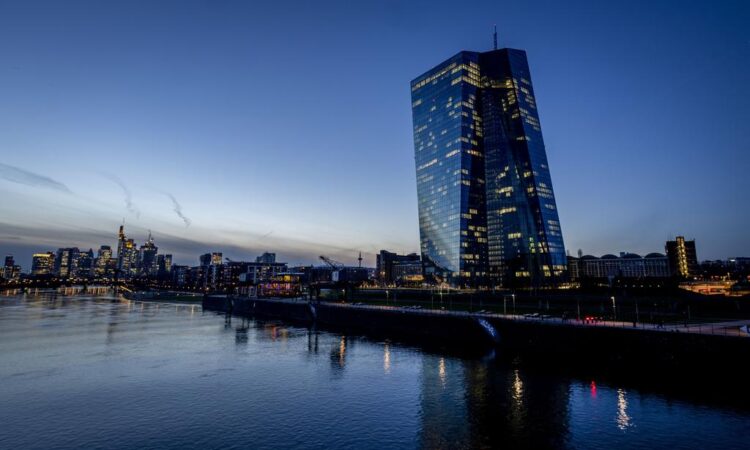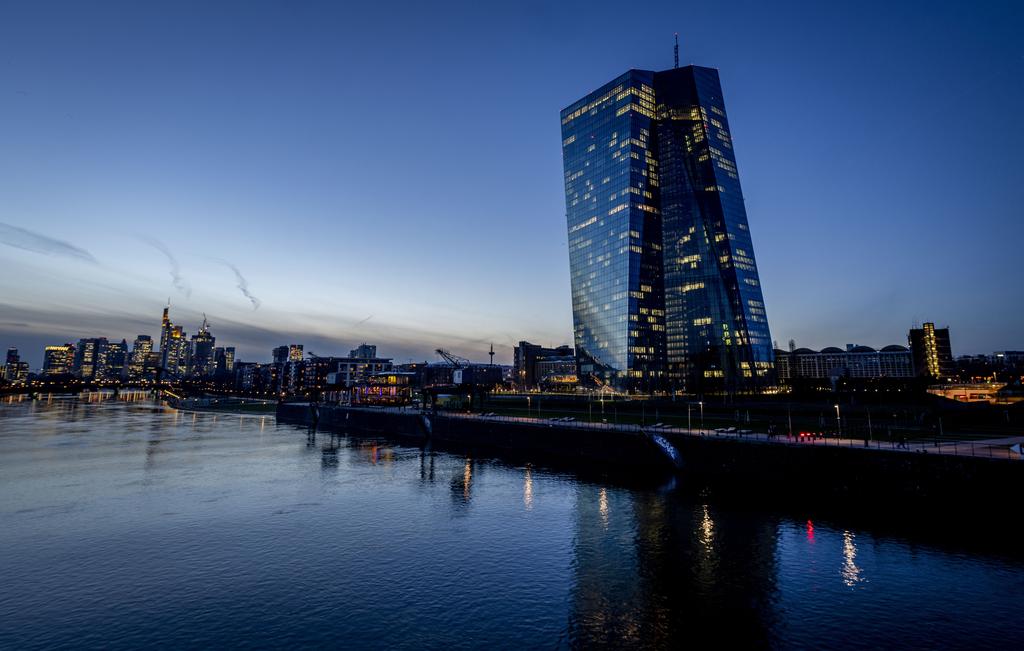

FILE – The European Central Bank is pictured in Frankfurt, Germany, Wednesday, March 15, 2023. Inflation in the 20 countries that use the euro slowed to 6.9 percent in March, the lowest level in a year, as food costs continued to rise while energy prices fell, making a sharp turnaround after months of punishing increases. (AP Photo/Michael Probst, File)
LONDON (AP) — Inflation in the 20 countries that use the euro currency slowed to 6.9% in March, the lowest level in a year, with food costs still on the rise while energy prices fell, making a sharp turnaround after months of punishing increases.
Consumer prices in the eurozone dropped from the 8.5% recorded in February, according to data released Friday by the European Union’s statistics agency, Eurostat.
The inflation has dropped to its lowest level in a year since since peaking at 10.6% in October.
But prices for food, alcohol and tobacco rose by a painful 15.4%, faster than the previous month’s 15%, in a sign that European consumers are still getting squeezed.
Energy prices, however, fell 0.9% — an abrupt change of direction after rising at double-digit rates over the past year.
Russia’s war in Ukraine pushed up prices for natural gas used to heat homes and generate electricity, fueling overall inflation, but the latest reading indicates that a mild winter and European efforts to store and source gas from sources outside Russia have paid off.
So-called core inflation, which excludes volatile food and energy prices, increased slightly to 5.7% from 5.6% the previous month. That number can give a better sense of whether inflation is becoming entrenched into the economy over the longer term.
• Do you have a question you want someone to try to answer for you? Do you have a bright spot you want to share?
We want to hear from you. Please email [email protected]



